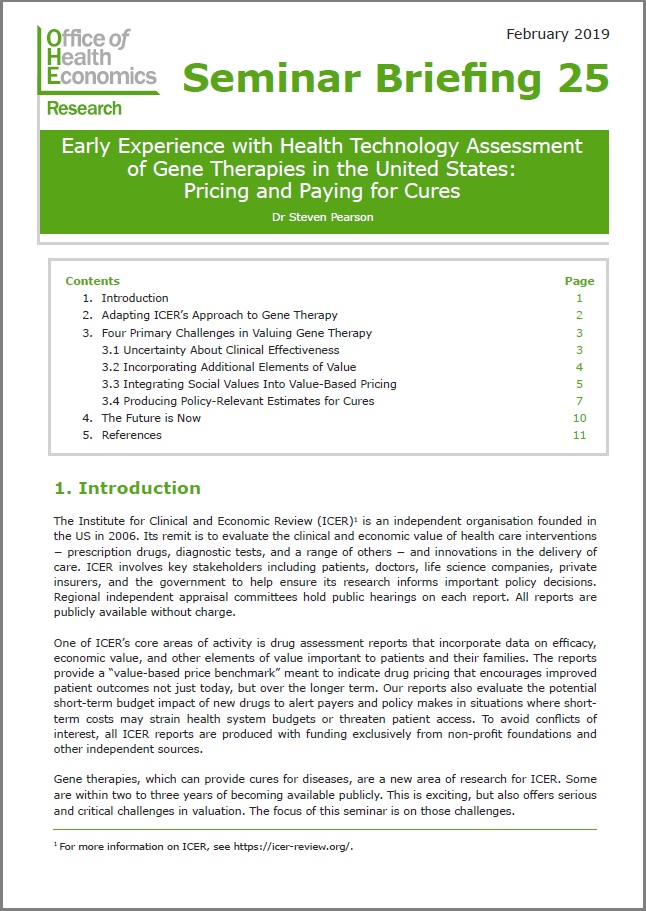Gene therapies, which can provide cures for diseases, are a new area of research for ICER. Some are within two to three years of becoming available…
Gene therapies, which can provide cures for diseases, are a new area of research for ICER. Some are within two to three years of becoming available publicly. This is exciting, but also offers serious and critical challenges in valuation. The focus of this seminar briefing is on those challenges.
Gene therapies, which can provide cures for diseases, are a new area of research for ICER. Some are within two to three years of becoming available publicly. This is exciting, but also offers serious and critical challenges in valuation. The focus of this seminar briefing is on those challenges.
The Institute for Clinical and Economic Review (ICER) is an independent organisation founded in the US in 2006. Its remit is to evaluate the clinical and economic value of health care interventions − prescription drugs, diagnostic tests, and a range of others − and innovations in the delivery of care. ICER involves key stakeholders including patients, doctors, life science companies, private insurers, and the government to help ensure its research informs important policy decisions. Regional independent appraisal committees hold public hearings on each report. All reports are publicly available without charge.
One of ICER’s core areas of activity is drug assessment reports that incorporate data on efficacy, economic value, and other elements of value important to patients and their families. The reports provide a “value-based price benchmark” meant to indicate drug pricing that encourages improved patient outcomes not just today, but over the longer term. ICER’s reports also evaluate the potential short-term budget impact of new drugs to alert payers and policy makes in situations where short-term costs may strain health system budgets or threaten patient access. To avoid conflicts of interest, all ICER reports are produced with funding exclusively from non-profit foundations and other independent sources.
Gene therapies, which can provide cures for diseases, are a new area of research for ICER. Some are within two to three years of becoming available publicly. This is exciting, but also offers serious and critical challenges in valuation. The focus of this seminar briefing is on those challenges.
